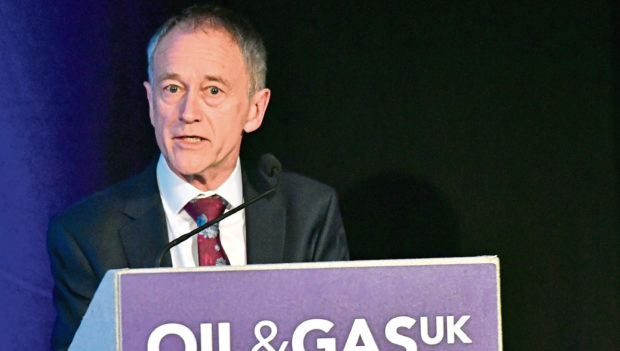Specialist decommissioning firms can give the UK the edge in a global oilfield dismantling market worth £67 billion over the next decade, according to a new report that will be launched in St Andrews today.
The Oil and Gas UK (OGUK)’s Decommissioning Insight will be presented to more than 500 people at the 10th Offshore Decommissioning Conference at Fairmont Hotel.
It states that cultivating a wider array of capabilities will better equip the supply chain to challenge global rivals.
Among the newcomers are companies who aim to deliver a full range of decommissioning services, while other firms are focused on more specific tasks such as well decommissioning.
OGUK suggests Scottish companies should focus on maximising their share of the domestic market, building experience and filling capability gaps.
But it also stresses the need for the UK to compete for decommissioning work in the Danish, Dutch and Norwegian sectors of the North Sea.
Decommissioning expenditure in the UK will make up 28% of the global total of £67bn in the next 10 years, the report claims. The US is the second biggest country for decommissioning spend, on 13%, followed by Brazil on 11% and Norway on 9%.
OGUK decommissioning manager Joe Leask said: “Our report underlines the significant intellectual capital anchored here in the UK.
“Ensuring this is shared is key to maintaining the competitiveness of the sector, enabling this homegrown industry to capture the lion’s share of an emerging global market some four times greater.”
The report adds that learning how to decommission oilfields without demolishing the UK oil and gas industry’s net-zero pledge is the next “big step”, although joining forces with carbon capture, usage and storage (CCUS) project developers could go a long way to solving the conundrum.
Reusing oil and gas infrastructure for CCUS will create “new value”, but also help deliver the industry’s “net zero” commitment, it adds.
OGUK says efforts to reduce decommissioning costs by collaborating and developing new technology are making headway and will slash the amount of cash the Exchequer has to return to companies.
OGUK upstream policy director Mike Tholen said the sector had done well to reduce decommissioning cost forecasts.
He added: “Decommissioning with the net zero agenda at the forefront of our minds will be the next big step.
“Where we lead, others will follow.”
business@thecourier.co.uk
